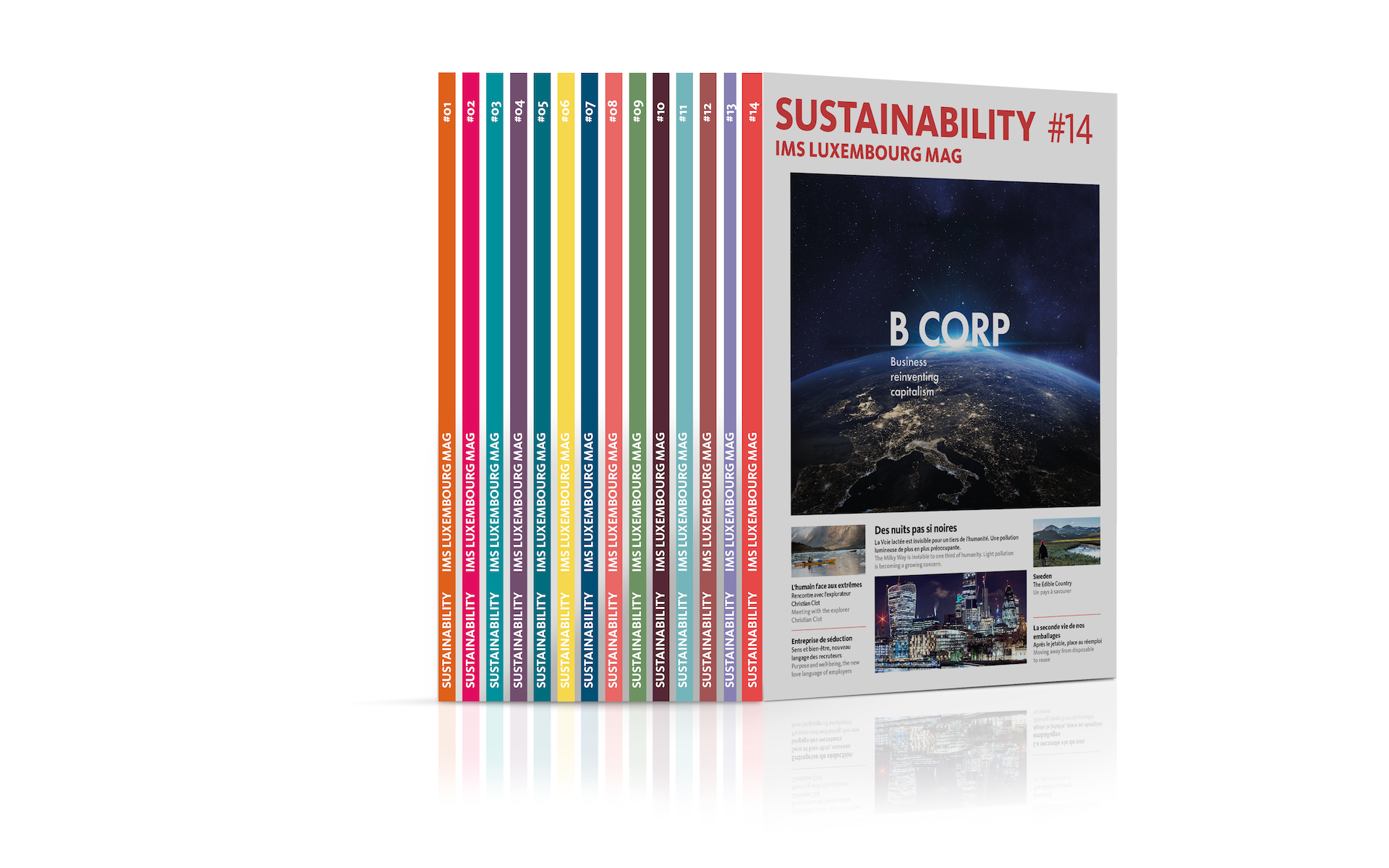A Green Desk to finance the energy transition

The BNP Paribas Group has joined the Science-Based Targets initiative, inviting all its subsidiaries to implement an ambitious plan to reduce carbon emissions. For the financial sector, the great potential for transformation lies, of course, in financing the energy transition. In Luxembourg, BGL BNP Paribas is working on this through a vast scheme that includes the Green Desk directed by Anne-Sophie Dufresne. Explanations.
INTERVIEW
Sustainability MAG: How is the Group’s ambitious objective to align its activities and investments on the Paris Agreement targets carried out in Luxembourg?
Anne-Sophie Dufresne: The BNP Paribas Group is committed to respecting and achieving the goal of limiting global warming below 2°C by 2100, as set out in the Paris Agreement. The perspectives for a low carbon and inclusive economy are rising, with attractive models combining economic performance and societal contribution.
In practice, BNP Paribas mobilises its efforts on issues for which the group possesses substantial levers, such as the financing of the real economy and the positive economic impact it induces, social responsible investments (SRI) and sustainable finance, supporting the energy transition, empowering entrepreneurs and youth, as well as taking into account the needs of local ecosystems (territories and communities) in which the group is imbedded. Luxembourg being one of the four domestic markets of the BNP Paribas Group, BGL BNP Paribas plays a determining role in the implementation of this strategy.
The Green Desk you created at the end of 2016 is thus a key element of this strategic scheme?
Yes, it is one of the many levers with which we support our clients, particularly in the financing of the energy transition. With regards to renewable energies, the BNP Paribas Group has, in 2016, set itself the goal of doubling its investments by 2020 to reach 15,4 billion euros. This target has already been achieved in 2018. BGL BNP Paribas committed to the achievement of this goal with enthusiasm and decided to put its words into actions by launching the Green Desk within the Banque des Entreprises. Today, we have successfully completed several projects in Luxembourg.
What kinds of projects can be financed by the Green Desk?
Thanks to its extensive experience and competencies in financing “green” projects, the Green Desk team supports Relationship managers and analyst in the study and structuration of funding for wind, photovoltaic, biomass or hydraulic projects.
The projects being considered are local ones, usually at small scales, which enables teams on the ground to work closely with the clients, to evaluate all key elements and to adequately structure the required funding mechanisms. We truly privilege building strong partnership relationships with our clients.
We discuss and consult each other on numerous points such as both our hypotheses and theirs, sensitive elements and risks associated with the projects (technical, leases, construction, contracts, etc.) and ways to mitigate them. We are lucky to have engineers who support us with benchmarks and review certain hypotheses with us. We revise or develop the business case and consequently adapt the financing. The quality and experience of the project sponsors always play an important role.
In Luxembourg, we are usually involved in projects with a minimum funding of 500,000 euros and up to 75 million euros. Beyond this scale, we are supported by major project financing and syndication teams.
Our drive is to act locally. We also see a natural tendency in the population to get involved with renewable energy cooperatives. We endeavour to support and grow this trend through our financing of photovoltaic, wind, cogeneration, heating and cooling systems, energy-performant buildings and, lest we forget, central biomasses projects which allow farmers to turn manure into energy.
Another field of interest to us is the support of industries; the upgrade of their facilities could drastically reduce their energy consumption. An ambitious program, yes, but an uplifting one, because we feel that all actors and stakeholders are joining forces to impulse positive change. However, it is crucial that it remains economically attractive for all, which is a sizeable challenge.
In practice, what does this amount to?
In 2019, BGL BNP Paribas had already achieved its goal to invest 200 million euros in renewable energy. All together, we financed tens of projects in Luxembourg, particularly in wind power and biomass. Our portfolio is currently made up of 38% wind power, 19% biomass, 5% photovoltaic and 22% hydraulic.
Moreover, BNP Paribas received the “Deal of the Year” prize by the MTN-I Awards for its role as banking intermediary and consultant in the exclusive structuration of a 250 million euros green Schuldschein for Encevo in 2018. This fundraising aims to exclusively finance renewable energy projects, smart electricity grids, sustainable real estate and sustainable transport solutions.
BNP Paribas is also the market leader in green bonds; it is a market expanding rapidly since the launch of the first “Climate Awareness Bond” in 2007. This is particularly compelling knowing that Luxembourg is also global leader in green bonds thanks to the Luxembourg Green Exchange.
You support projects making a reasonable use of natural resources. This leads to a change of perspective for you: for example, the financing of the circularly economy must require a very different approach…
Absolutely. The topic of financing the circular economy has been actively tackled through our leasing activities. BNP Paribas Leasing Solutions, which offers professional leasing and financing solutions has joined the Ellen MacArthur Foundation’s Circular Economy 100 Program. This initiative brings together corporations, public authorities and the scientific community to develop alternative models to the linear “take, make, waste” triptych.
This commitment is brought to life, for example, through our ongoing partnership with 3 Step IT to build “BNP Paribas 3 Step IT”: a service offer embedded in the circular economy. It aligns with companies’ expectations for “product as a service” financing solutions, which are more flexible and more reasonable through the maintenance, refurbishing and the re-sale of electronic equipment
Building on the Green Desk’s success since its inception, what future ambitious and next steps do you envision?
We are about to review and re-establish our medium-term objectives for the energy transition. We are thinking of reinforcing the Green Desk and of diving into new issues and ideas for companies and maybe also for the public.

To be read also in the dossier "Science-Based Targets":

